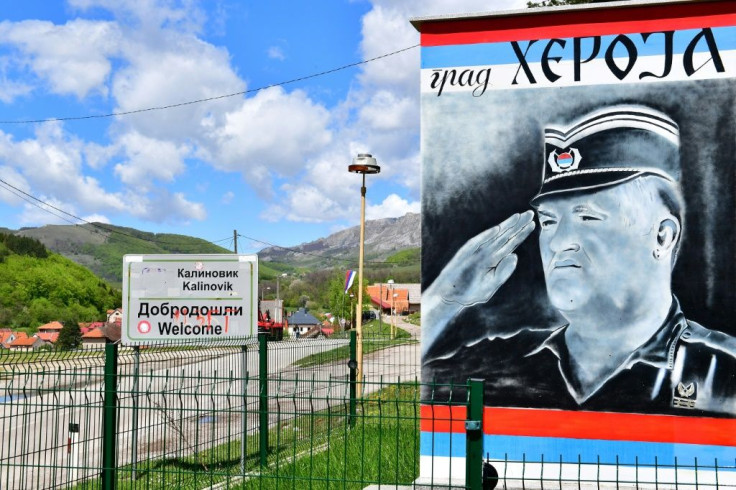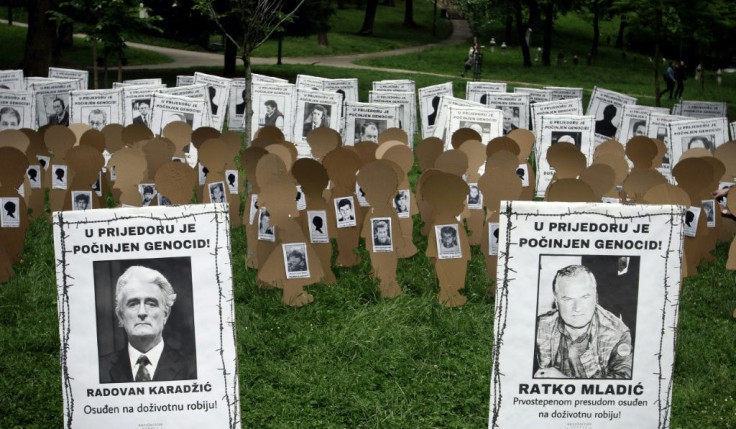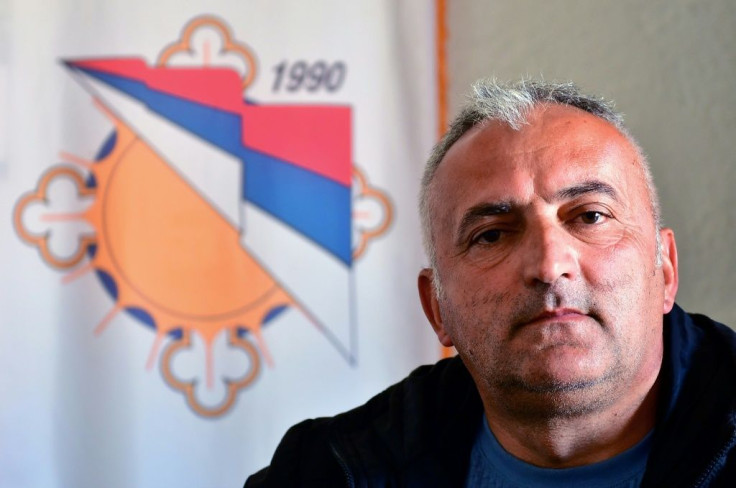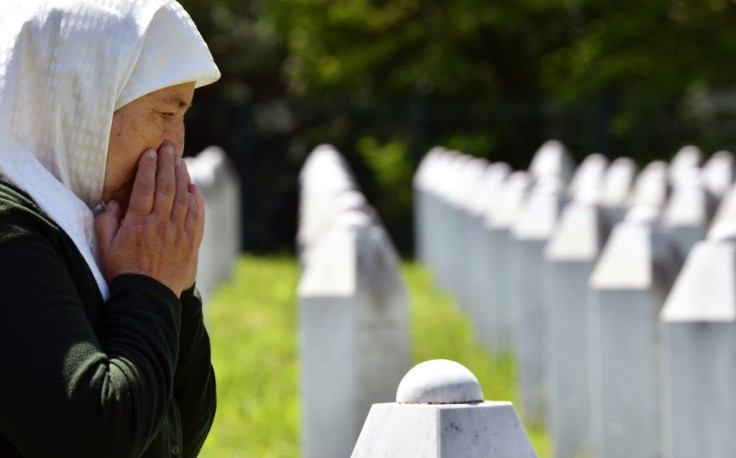Murals And Memories: How Bosnian Serbs Revere War Criminal Mladic
The triumphant face of war criminal Ratko Mladic stares out of a roadside mural in his hometown with a caption hailing him simply as a "hero" -- a view still shared by most Bosnian Serbs.
Mladic, who will hear the decision of his final appeal against his conviction next Tuesday, prosecuted Bosnia's 1992-1995 civil war with ferocity against civilians and soldiers alike.
A tribunal based in The Hague jailed the 78-year-old former general for life in 2017 for war crimes including the 1995 massacre of more than 8,000 Muslim men and boys at Srebrenica, the only incident in the war classed as genocide.

But Radosav Zmukic, head of a local veterans' group in Mladic's hometown of Kalinovik, believes that this judgment could not be further from the truth.
"Everyone is proud that he is from here," Zmukic says, recalling that he had met Mladic two or three times during the 1992-1995 war and was impressed by his "boldness".
"Crimes were committed by all sides. But such a soldier was not capable of ordering the killing of people, especially not civilians," Zmukic tells AFP from his small dark office in the town hall.
For the Muslim survivors, the continued denial of wartime atrocities, embodied in the hero-worship of men like Mladic, is the main obstacle in the path to reconciliation in a country still deeply divided along ethnic lines.

Yet the denial of wartime culpability seems to have grown in recent years, along with reverence for the likes of Mladic and political leader Radovan Karadzic.
Milorad Dodik, the long-time leader of Bosnia's ethnic Serb entity Republika Srpska, once agreed with international judges that the Srebrenica massacre -- the worst atrocity in Europe since World War II -- amounted to genocide.

That was in 2007. He has since switched his position dramatically.
Now he claims he was "manipulated" into thinking that international tribunals were treating the issue fairly.
"The attitude of The Hague tribunal towards Serb victims is humiliating and unfair," Dodik told local media after Mladic's 2017 conviction, highlighting that 70 percent of those put on trial were ethnic Serbs.
Dodik was also gushing in his praise for Mladic after the conviction, saying no court ruling could take away the "position of a hero" that had been "reserved for him for many years".

That attitude filters through Bosnian Serb society.
"Mladic and the people he was leading are all innocent," says Serb veteran Ljubo Tomovic in Foca, another town that suffered mass killings of Muslims by Serbs during the war.
Here again, Mladic is memorialised in a mural, this time with the caption: "Thanks to your mother".
"He only defended his people," Tomovic tells AFP. "To convict him would be a disgrace and a sin."
Bosnia's war between its Croats, Muslims and Serbs claimed nearly 100,000 lives, almost two-thirds of whom were Muslims, according to an independent commission.
The war left the country split into two entities -- the Muslim-Croat Federation and the Republika Srpska.
Bosnian Muslims have long campaigned for the denial of genocide and war crimes to be outlawed.
But Serb MPs in the central parliament have blocked all attempts to pass the law.
"I do not understand why it is still acceptable to deny, to call such a man innocent -- even worse, to call him a hero," says Almasa Salihovic, whose brother Abdulah was killed at Srebrenica.
Salihovic is spokeswoman for the Srebrenica memorial, which oversees a cemetery just outside the town with the graves of more than 6,600 identified victims.
Fadila Efendic's son Fejzo and husband Hamed are among them.
"Whoever denies the genocide is also a war criminal," says Efendic, who heads one of several groups representing the mothers of victims.
She reflects that nothing can bring back those who were killed, but acknowledging the genocide would at least put the country on the right track.
"And above all, it will be a relief for the mothers, a sign that justice has been served," she says.
© Copyright AFP 2024. All rights reserved.





















